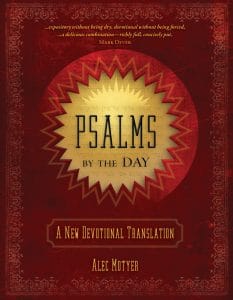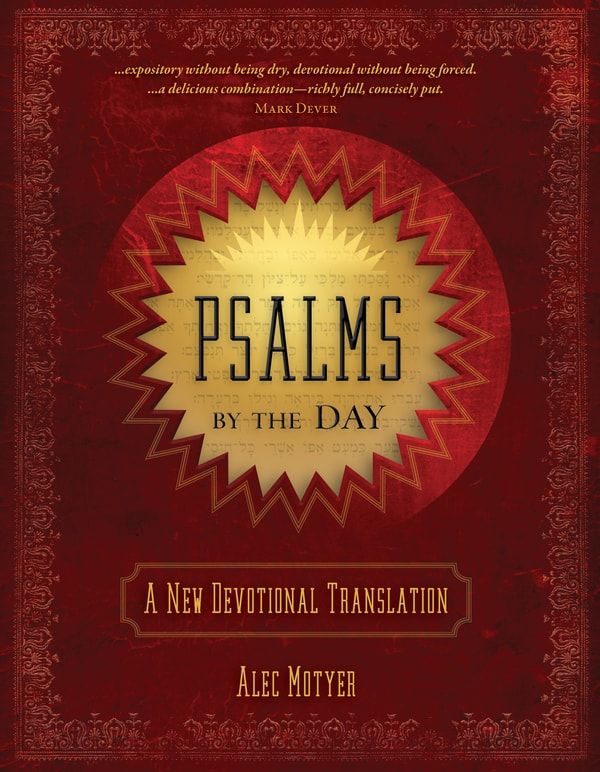Psalms By the Day


I’ve decided this year to major in the Psalms. I’m reading through the Bible using The Bible Project, which I highly recommend. But I’m also using Tim Keller’s book The Songs of Jesus, as well as Alec Motyer’s Psalms by the Day: A New Devotional Translation.
I’m grateful for Motyer’s work for three reasons.
A New Translation
I love Motyer’s translation. Motyer was a biblical scholar who’s praised by people like Mark Dever, Tremper Longman, and Tim Keller. He was also a churchman, and obviously cares deeply about bringing the treasures of the Psalms to our lives and to the church.
Motyer aimed to bring us as near as possible to the Hebrew of the original. I’m finding his translation to be readable and compelling. I’m noticing details in the Psalms that I’ve never discovered before.
His translation is both faithful to the Hebrew, and readable — no easy feat. It’s a translation that you’ll appreciate both for study and for devotional reading.
Structure and Notes
Of course, there’s lots to say about each psalm. Motyer helpfully included sidenotes, as well as headings that help us understand the poetic structure of the text. “I am dreadfully afraid in case my enthusiasm for analysis prove a nuisance and hindrance to you,” he wrote. “If you should find it a burden, just get on with reading.”
He needn’t have worried. The notes are helpful and unobtrusive. I’ve sometimes read them and sometimes skipped them, but I’ve never found them to be anything but substantive. Both the notes and the headings are a gift for anyone who wants to dig deeper into each psalm.
Devotions
Every so often, Motyer includes a devotional called “Pause for Thought” on a psalm or group of psalms. This would be a fine volume without the devotionals; with them, it becomes exceptional. Motyer was not a dispassionate exegete. He loved the Word, and he loved Jesus. His devotionals apply the message of Psalms, and help model how to reflect and apply these ancient songs to our lives today.
Learning the Psalms
I’ve just finished one of Motyer’s devotionals on death. In reflecting on Psalm 39, he reflected on death. “For a Christian, considered solely as an individual, setting aside relationships and responsibilities, to die is the very best thing that can happen!” he wrote. “Dying without being afraid is one of the pearls of great price of being a Christian.”
It wasn’t the first time he’d written about death. In his book After Death he wrote:
To Christians the love of God is a reason for confidence in relation to death and the life to come. We face death with equanimity and hope — a joyful, expectant, sure hope — because we have come to know that not even death can separate us from the love of God (Romans 8:38-39), and this love has been so perfectly proved that we can go forward fearlessly, for he who has loved us loves us still, and always will love us. Therefore we are secure.
On August 26, 2016, Motyer died.
There’s something powerful about reading the truth of the Psalms, and then reading the reflections of a godly scholar, and realizing that these are truths that he’s applied and lived both in life and in death.
We need the Psalms. We need to learn them and to be shaped by them. Motyer’s done us a great service through this translation. Read it; study its contents; treasure it; live in light of the truths found in this book.






